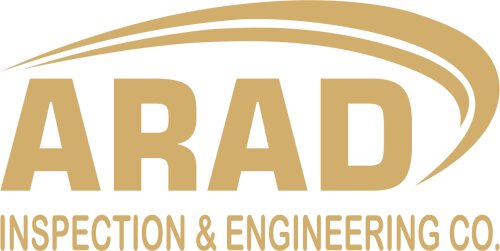Best Climate Change Law Lawyers in Iran
Share your needs with us, get contacted by law firms.
Free. Takes 2 min.
Or refine your search by selecting a city:
List of the best lawyers in Iran
About Climate Change Law in Iran
Climate change law in Iran focuses on regulating activities that impact climate change, managing greenhouse gas emissions, and promoting sustainable development within the country. While Iran is a party to several international environmental agreements, the national approach emphasizes balancing economic development, particularly in the energy sector, with environmental protection goals. Key legal frameworks are evolving to address industrial emissions, energy efficiency, natural resource conservation, and adaptation to the impacts of global warming. Various ministries and agencies contribute to policy design, including the Department of Environment, making climate change law a multifaceted and developing area in Iran.
Why You May Need a Lawyer
There are several situations where legal help may be essential for individuals, businesses, or organizations dealing with climate change law issues in Iran:
- Navigating complex environmental regulations and understanding your obligations regarding emission limits, permits, and reporting.
- Seeking approvals for large-scale development projects that may impact the environment or require climate compliance.
- Responding to government inspections, investigations, or enforcement actions related to environmental harm or non-compliance.
- Defending against allegations of contributing to pollution or land degradation.
- Participating in public consultations or disputes about environmental impact assessments or new legislation.
- Protecting your rights or those of your community in cases where climate change impacts your health, property, or livelihood.
- Navigating international shipping or trade rules that involve compliance with foreign or international climate agreements.
Local Laws Overview
Iran's legal framework for climate change includes several laws and policies that focus on environmental protection, energy use, and sustainable development. Important elements include:
- The Clean Air Act, setting standards for emission controls and regulating air pollutants.
- Environmental Protection and Enhancement Laws, enforced by the Department of Environment, covering land, water, and ecosystem protections.
- Regulations addressing industrial emissions, fossil fuel use, and energy efficiency, often linked to state-owned enterprises.
- Policies for the development of renewable energy resources and incentives for sustainable practices, aiming to diversify the energy mix.
- National commitments under international agreements such as the Paris Agreement, which influence policy and legal development but have limited direct enforcement at the domestic level.
- Ongoing initiatives for climate change adaptation and natural disaster risk reduction, especially for vulnerable regions affected by drought or flooding.
These laws are enforced through multiple authorities, with the Department of Environment often playing a central regulatory and oversight role. Non-compliance can lead to administrative penalties, fines, or even suspension of operations.
Frequently Asked Questions
What is climate change law?
Climate change law covers the legal rules and policies that address the causes and effects of climate change, including limits on greenhouse gas emissions, energy regulations, and adaptation strategies.
Is Iran committed to any international climate change agreements?
Iran is a signatory to several international agreements, including the United Nations Framework Convention on Climate Change and the Paris Agreement, though implementation and compliance measures are evolving.
Who enforces climate change laws in Iran?
The Department of Environment is the main national authority for enforcing climate change and environmental laws, cooperating with other relevant ministries and regional agencies.
Do businesses have specific climate-related obligations?
Yes, businesses, especially in energy, manufacturing, and natural resources, must comply with regulations on emissions, pollution control, and sometimes renewable energy adoption. Non-compliance can result in penalties.
Are there incentives for using renewable energy in Iran?
The government has introduced policies and incentives for investing in renewable energy, such as feed-in tariffs, tax benefits, and supportive infrastructure for clean energy initiatives.
What should I do if my area is affected by climate change impacts, like drought or flooding?
You may seek assistance from local authorities and potentially pursue legal remedies for damages or inadequate government response, especially if environmental regulations are not followed.
Can I challenge a project or development that may harm the environment?
In some situations, individuals or communities can participate in public consultations or file complaints if projects violate environmental procedures, such as environmental impact assessments.
Are climate change laws applied uniformly throughout Iran?
While national laws set the framework, enforcement may vary depending on the region and the nature of local industries. Some regions may face stricter oversight due to higher environmental risks.
What are the penalties for violating climate change laws?
Penalties can include monetary fines, suspension of business licenses, and orders to remedy environmental harm. In severe cases, criminal charges may also apply.
How can I stay informed about new climate change regulations in Iran?
Regularly follow updates from the Department of Environment and official government publications. Consulting a legal expert can ensure that you are aware of your responsibilities as laws change.
Additional Resources
The following resources and organizations may be helpful for those seeking information or support related to climate change law in Iran:
- Department of Environment (DoE): The primary body overseeing environmental policies, regulations, and enforcement throughout Iran.
- Iranian Energy Agency: Provides information on renewable energy incentives and national energy policy.
- Local Environmental NGOs: Non-governmental organizations working on sustainability, advocacy, and public awareness.
- Iranian Bar Association: Maintains a list of qualified legal professionals with expertise in environmental and climate change law.
- Universities and Research Institutes: Many academic institutions in Iran publish studies and host programs on environmental protection and climate change.
Next Steps
If you need legal assistance with climate change law in Iran, consider taking the following steps:
- Identify the nature of your issue, whether it is compliance, licensing, regulatory disputes, or defending against an enforcement action.
- Gather all relevant documentation, including permits, correspondence with authorities, and records of environmental measures taken.
- Seek a qualified lawyer with experience in climate change or environmental law, particularly one familiar with the administrative procedures and local regulations.
- Engage with government resources, such as contacting the Department of Environment, to understand your rights and clarify obligations.
- Stay updated on new regulations and best practices by subscribing to official bulletins or participating in workshops and seminars.
Legal matters involving climate change can be complex and have long-term consequences. Seeking timely professional advice can help you navigate these challenges and ensure compliance with Iran’s evolving legal landscape.
Lawzana helps you find the best lawyers and law firms in Iran through a curated and pre-screened list of qualified legal professionals. Our platform offers rankings and detailed profiles of attorneys and law firms, allowing you to compare based on practice areas, including Climate Change Law, experience, and client feedback.
Each profile includes a description of the firm's areas of practice, client reviews, team members and partners, year of establishment, spoken languages, office locations, contact information, social media presence, and any published articles or resources. Most firms on our platform speak English and are experienced in both local and international legal matters.
Get a quote from top-rated law firms in Iran — quickly, securely, and without unnecessary hassle.
Disclaimer:
The information provided on this page is for general informational purposes only and does not constitute legal advice. While we strive to ensure the accuracy and relevance of the content, legal information may change over time, and interpretations of the law can vary. You should always consult with a qualified legal professional for advice specific to your situation.
We disclaim all liability for actions taken or not taken based on the content of this page. If you believe any information is incorrect or outdated, please contact us, and we will review and update it where appropriate.
Browse climate change law law firms by city in Iran
Refine your search by selecting a city.















